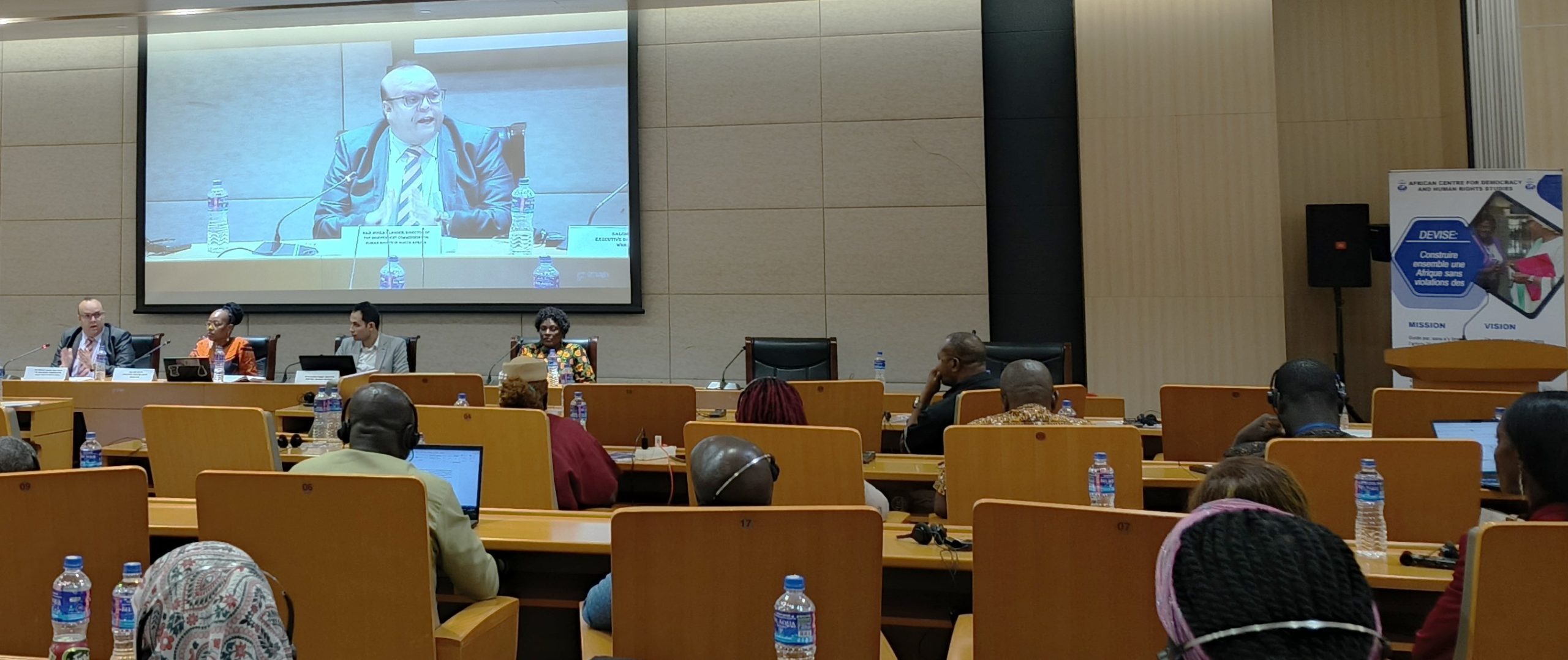Since the last NGO forum of the African Commission on Human and Peoples’ Rights, African human rights defenders agreed that the threats to civic space were of increasing concern.
While confirming the persistence of restrictions on freedoms of expression, of association, and assembly, panellists noted that women human rights defenders (WHRDs) are experiencing these same threats in specific and particular ways due to their gender.
As women defenders, Salome Nduta, Executive Director, Kenya WHRDs Hub revealed that women human rights defenders are doubly victims of restrictions on civic space: as citizens defending human rights on one hand and as women on the other. She confirmed that in different countries of the continent, women human rights defenders are also victims of arbitrary arrests, attacks, harassment, including in digital spaces.
Giving the examples of women defenders working on specific rights, such as environmental rights and gender orientation, Brenda Kugonza, Executive Director of the WHRD Network Uganda, shared the experience of Ugandan women human rights defenders who also experience intimidation, public shame, and backlash during the legitimate execution of their work.
The panellists acknowledged that the severity of restrictions leads organisations such as CIVICUS to develop a tracker to assess the effectiveness of the civic space in African countries. Highlighting women human rights defenders’ specific vulnerabilities, Salome Nduta invited to the development of a women-oriented tracker to assess women defenders’ access to civic space, stressing that ‘protecting women’s rights is not charity, it is justice’.




